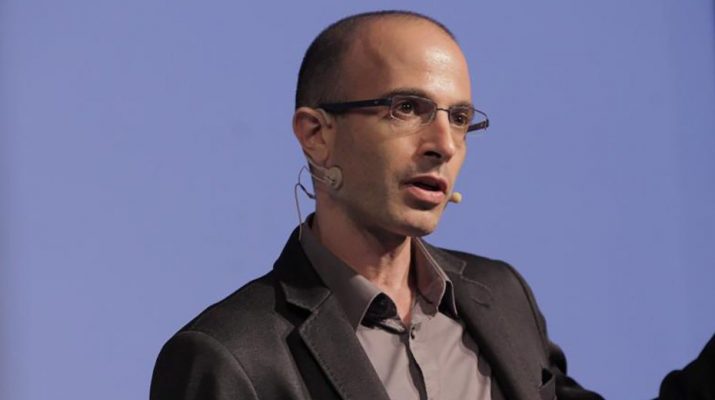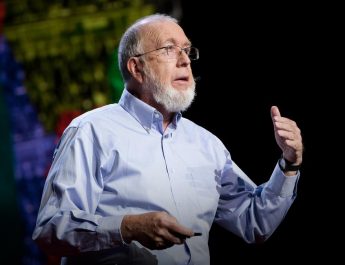Yuval’s works on the future of the digital world cause the globe to take notice and discuss. At OMR (Online Marketing Rockstars), Yuval Noah Harari primarily talked about the developments and consequences of artificial intelligence. After his keynote, German journalist and entrepreneur Kai Diekmann conducted an interview on-stage.
Prof. Yuval Noah Harari is a historian, philosopher and the bestselling author of Sapiens: A Brief History of Humankind, Homo Deus: A Brief History of Tomorrow, and 21 Lessons for the 21st Century.
Born in Haifa, Israel, in 1976, Harari received his PhD from the University of Oxford in 2002, and is currently a lecturer at the Department of History, the Hebrew University of Jerusalem. As of the end of the end of 2018, his books have sold 19 Million copies worldwide.
Prof. Harari originally specialized in world history, medieval history and military history. His current research focuses on macro-historical questions such as: What is the relationship between history and biology? What is the essential difference between Homo sapiens and other animals? Is there justice in history? Does history have a direction? Did people become happier as history unfolded? What ethical questions do science and technology raise in the 21st century?
In 2018 Yuval Noah Harari gave a keynote speech on the future of humanity on the Congress Hall stage of the World Economic Forum annual meeting in Davos. Three months later, he presented the first ever TED talk delivered as a digital avatar. Over the last couple of years Harari has met with President Emmanuel Macron of France, Chancellor Angela Merkel of Germany, President Mauricio Macri of Argentina, President Frank-Walter Steinmeier of Germany, and Mayor Ying Yong of Shanghai. In 2019 Yuval sat down for public conversations with Chancellor Sebastian Kurz of Austria (on the future of Europe) and with Facebook CEO Mark Zuckerberg (on society and the future of artificial intelligence).
Published in 2014, Harari’s Sapiens: A Brief History of Humankind has become an international hit. By 2018, 11.5 Million copies had been sold and the book was translated into over 50 languages. It was a New York Times top 10 bestseller, and held positions #1-#3 on the Sunday Times’ bestseller list for 96 consecutive weeks, with over 150 weeks in the top ten. Sapiens was recommended by Mark Zuckerberg, Barack Obama and Bill Gates. In 2018 producer Ridley Scott and Oscar-winning director Asif Kapadia announced that they will adapt the book into a Hollywood movie.
In 2016 Prof. Harari returned with Homo Deus: A Brief History of Tomorrow, a critically acclaimed book that examines the big future projects facing humanity in the 21st century. Within two years, 5.5 Million copies of the book had been sold worldwide, and it was translated into over 50 languages.
After exploring deep into the past and then the future, Yuval Noah Harari published 21 Lessons for the 21st Century in 2018. Here he stopped to take the pulse of our current global climate, focusing on the biggest questions of the present moment: What is really happening right now? What are today’s greatest challenges and choices? What should we pay attention to? Within a few months, 2 Million copies of 21 Lessons had been sold worldwide.
Sapiens won the 2019 ‘Academic Book of the Year’ prize as part of the UK’s Academic Book Trade Awards. In 2017 Homo Deus won Handelsblatt’s German Economic Book Award for ‘the most thoughtful and influential economic book of the year’, and in 2019 it was recognized as the ’Wise Book of the Year’ by Krakow’s Jagiellonian University. Yuval Noah Harari is a two-time winner of the Polonsky Prize for Creativity and Originality, which he was awarded in 2009 and 2012. In 2011 he won the Society for Military History’s Moncado Award for outstanding articles on military history.
Prof. Harari lectures around the world on the topics explored in his books and articles, and has written for publications such as The Guardian, Financial Times, The New York Times, The Times, The Economist and Nature magazine. He also offers his knowledge and time to various organizations and audiences on a voluntary basis.
Source: https://www.ynharari.com/about/




